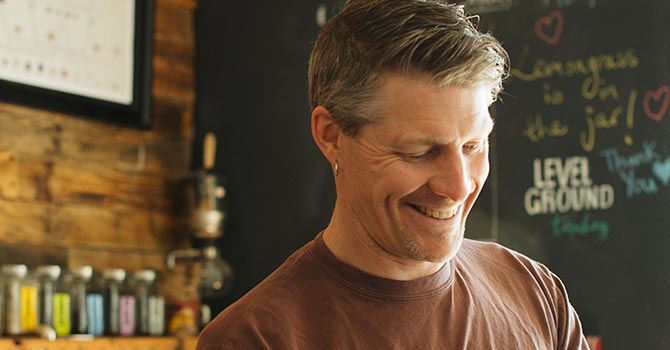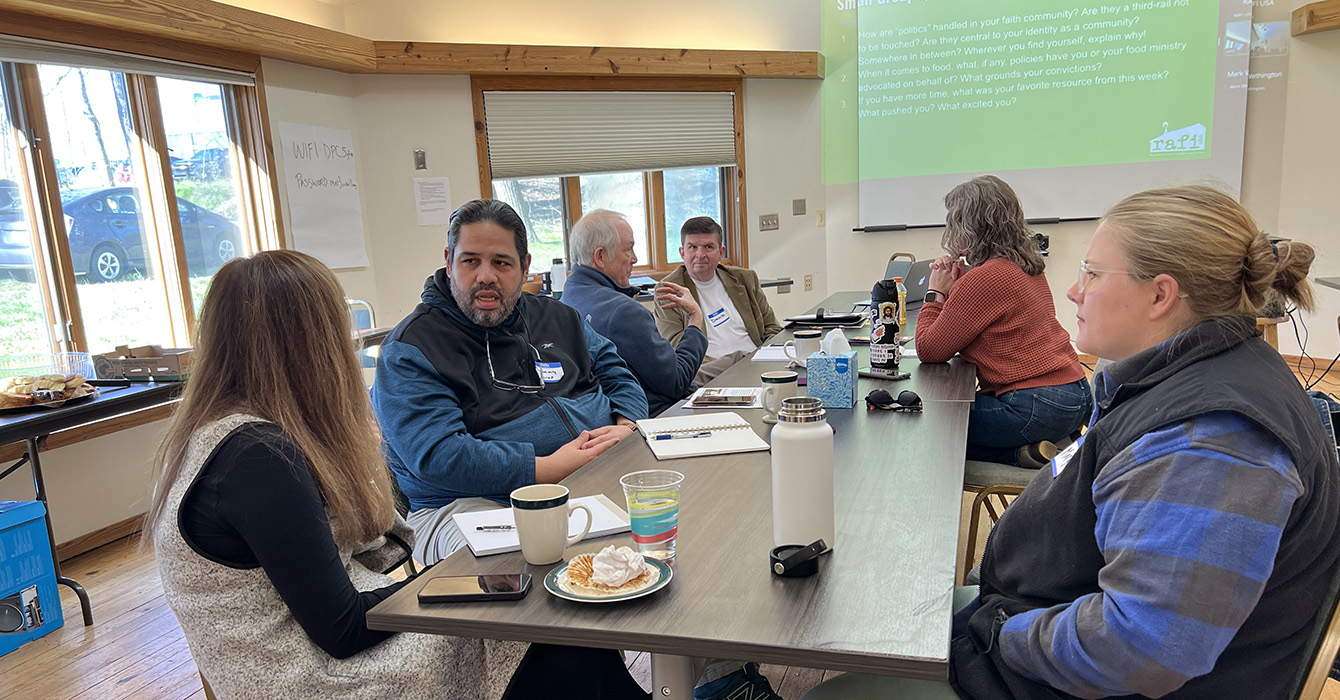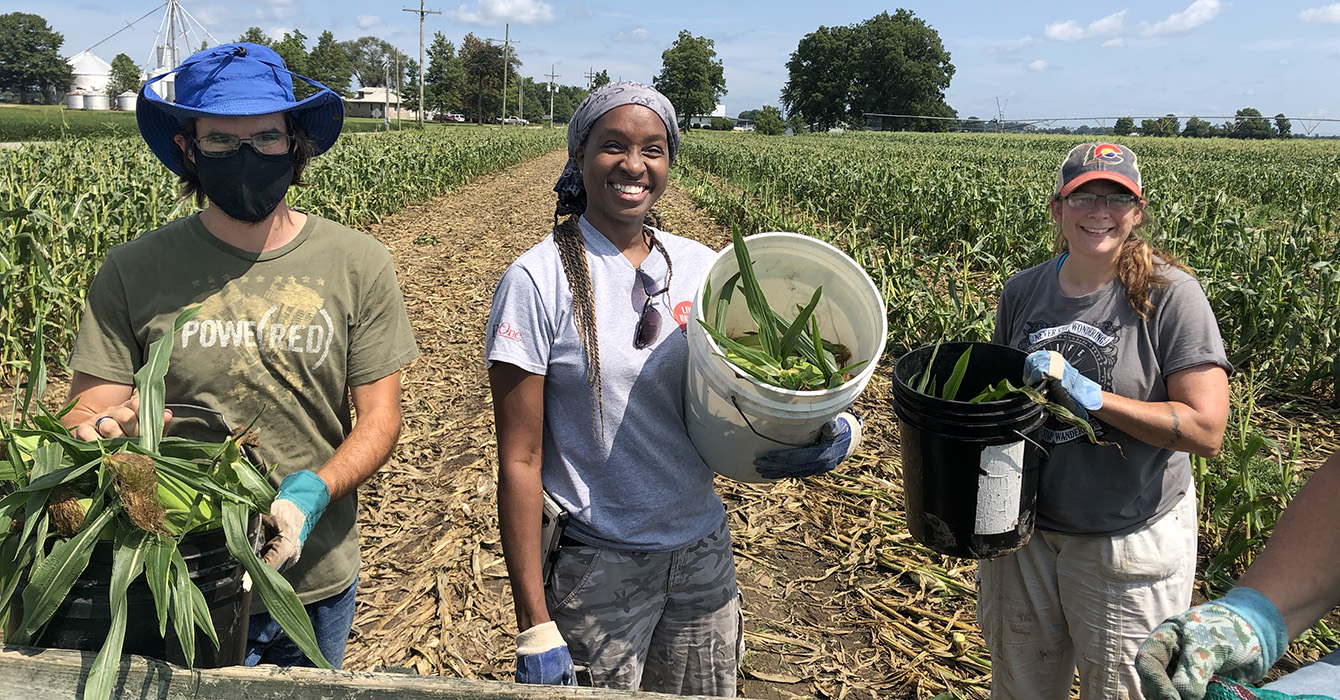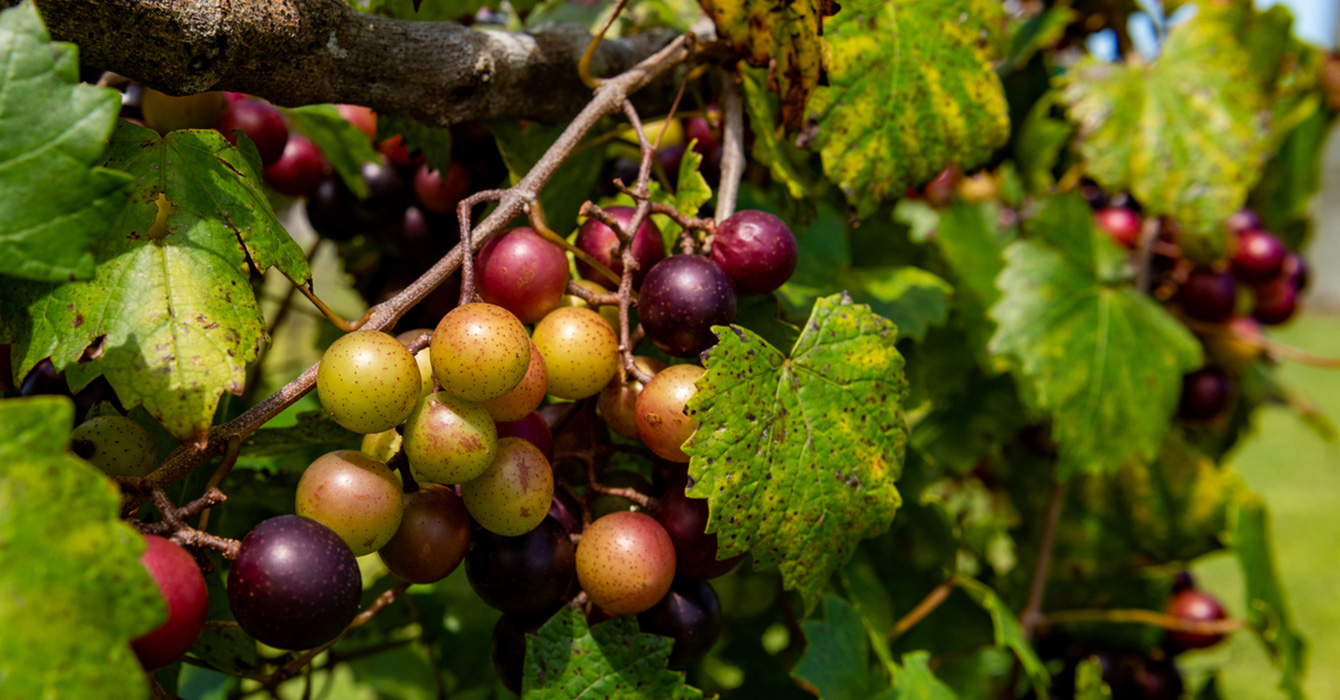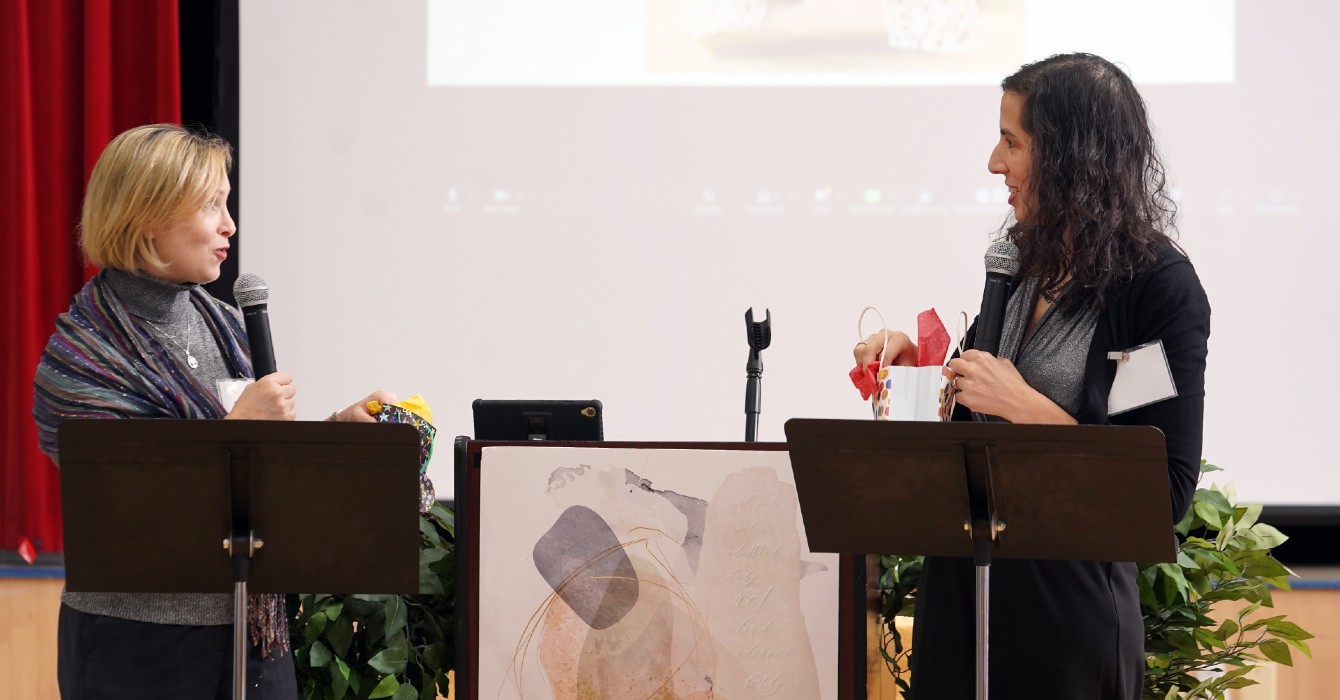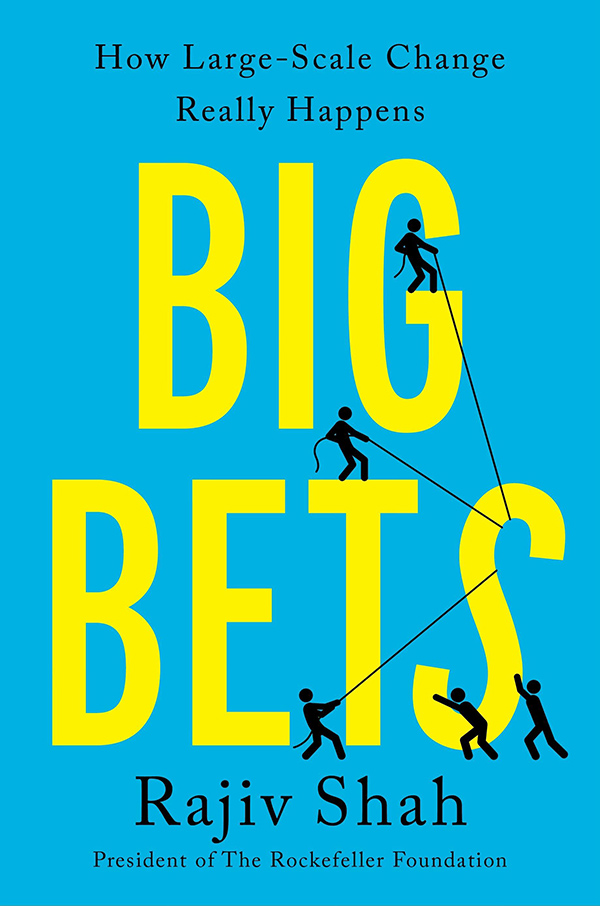Stacey Toews is co-founder of Level Ground Trading, a fair-trade enterprise in Victoria, British Columbia, that manages a $10 million-a-year business in coffee, tea, dried fruit, rice, cane sugar and spices.
Toews, who previously was a pastor in the Christian and Missionary Alliance, gives hundreds of talks each year. He tells groups both religious and secular the same thing: God deeply loves the poor and the marginalized.
“Our first goal is not to sell product but to show the big picture that’s not working for the soil, for farmers or for the ecosystem,” he said.
Level Ground invests in the communities it is part of. It pays its farmers well, and also pays photography subjects appropriately for using their images for marketing. It offers incentives for its employees to bike or bus to work and has remained landfill-free for 13 years.
Faith & Leadership contributor Jason Byassee spoke with Toews about his business model and the changes he would like to see in the food system. The following is an edited transcript.
Q: Were you always into coffee?
No. This was always about farmers and what can be sustainably sourced. My wife and I got intrigued by growing our own food. That changed everything.
I’m in this to make a living, not a killing. Our world has systems in place that assume to get rich, you have to leave people and land in destitution. I want a system designed for the good of all who bear the image of God, where justice and mercy infuse every pore of it.
For example, Level Ground sells an heirloom rice from the Philippines, from a strain that’s 2,000 years old. When the Christmas story was unfolding, farmers were first growing this strain.
We have this deep gene pool of the world’s rices, but three-fourths of the world’s heritage seeds were lost in the last century. People always ask about how much this rice costs, but I ask back, “Can I tell you how valuable this is?”
Q: Do you ever feel angry at the injustice of our food systems?
That was my reaction for years, but you can sound like the ethics police and make everyone feel bad, including yourself.
I talk often about pace and posture. If your pace slows down enough, you can regain the wonder of a child: “Look at the ants! And the cracks in the sidewalk!” Your posture can become such that you can listen to a message contrary to what you believe right now but more true than what you’re holding on to.
We adopted three of our four children from Haiti, where Columbus killed the natives. Europeans, all of whom claimed the name of Christ, then enslaved my children’s ancestors.
They defended this with a lie -- that black people weren’t human -- so that English people could have sugar in their tea and French people could make eclairs.
I took my son to meet some Ethiopian farmers who were sleeping 15 to a room smaller than his bedroom. He asked them how much money they made in a year. And on our way out, he said, “Dad, I think I spend more on that per year in Slurpees.”
We don’t import people now, but we do import chocolate from places that enslave children, and also soccer balls and cellphones and rugs and rubber.
These are heavy, heavy topics.
Q: Where did Level Ground get its name?
My business partner Hugo Ciro got us into fair trade. We needed a name that could build a brand of products from the same types of places all around the world.
I was reading Isaiah’s prophecy for John the Baptist, an advent of a messiah who would, spiritually speaking, mow down mountains and create an environment where the good news could be received, with the ground leveled.
From a secular perspective, this isn’t a handout or a hand up; you just get rid of the hierarchy and provide equal opportunity for everyone farming, and market access for those squeezed out.
Q: A lot of what you’re talking about has to do with power. How do you think about power theologically?
My goal is to connect what is currently disconnected. For example, we have this notion that you have to work full time to pay the mortgage in 30 years. So someone else will be paid to care for and feed your children, so you can have the money to get them into a good school, so they can pay their mortgage -- we’re in complete denial of the unsustainable systems we’re supporting.
I prefer to get out into my garden. Yesterday, I cleaned out the dead bees from the winter.
People always ask, “How much time does this take you?” They’re implying, “How do you have time for bees when you have to pay the mortgage?”
I took my mom to lunch and for a walk, and she texted me thanks “for taking time out of your busy schedule.” How have I given her that impression about what I value?
We all know we’ll take care of our parents one day. Am I just supposed to suddenly care for her when I haven’t for 40 years and we have no memories together? We would all agree that’s ridiculous, right?
Unhealthy soil won’t yield healthy food, and an unhealthy physical body won’t yield healthy relationships. I’m trying to lean into this without being competitive or critical, but I want life to count.
Q: What is Level Ground trying to accomplish?
We say, “We shake the hands that work the ground.” Every product is a labyrinth of opportunity and complexity.
We try to lead by being transparent. Every shipment of coffee we’ve made you can see online -- select to see its origin, see its price versus the world price for Arabica, how much our farming partner got paid.
Most businesses keep all of this in the dark, and farmers in the corners, to make money.
Then the product has to be good. Folks will reach for a product once to be morally virtuous, but not twice. All our products need to be high-quality to establish a loyal customer base.
The fruit-drying facility in Colombia is in their 15th year in operation, their fourth facility. They’ve moved their whole workforce four hours south to a new community with a purpose-built facility.
When we started, there was no organic farming in this area. Now we have 200 acres certified and four competing companies (which is wonderful for the market). We ask what a system might look like where the farmer is out front, with their face on the label, and the goal isn’t the cheapest product but a healthy one. The main goal of food is health and life, but most of our world’s food is designed to be cheap, which hurts health and life.
Our only record of Jesus being angry is when the marketplace is misunderstood. The Minor Prophets go on about just scales and farmers leaving gleanings, so you can have the wonder of a story like Ruth, but Jesus is mad at only one thing recorded: when people don’t understand how the marketplace is supposed to function.
Q: Could your approach work in other industries?
Coffee and herbs are not what feed the world or nourish the planet; that would be rice and corn and tea.
But corn is the most subsidized agriculture commodity on the planet. It’s hidden in products in which six to eight of the ingredients are corn from different places with different names.
We have destroyed more countries’ economies with cheap corn than we have with war.
We should instead grow what we can grow (garlic, for example, can grow in every province in Canada, but we import it from China), then sell the excess locally, then export only what’s left.
Now, if I’m the farmer, the market promises me cash for, say, coffee. I stop growing fruits and vegetables -- in places where bananas grow wild -- and raise a crop that fluctuates from 40 cents a pound to $3.20 in the last 20 years. So I lose the knowledge of agriculture from centuries past.
That gives me cash to go to the market. Now, who’s poorer than me who’s going to grow my food?
If folks rethink the way they grow and eat food, it’ll probably be good for Level Ground in the market, too. Our first goal is not to sell product but to show the big picture that’s not working for the soil, for farmers or for the ecosystem.
Q: How has your work changed your theology?
It hasn’t; it’s just made sense of it. I’m preaching Psalm 27 this Sunday, about God’s intimacy that dispels fear. This is all a matter of God seeking our love in response -- Romans 5:8 is unpacked in a psalm.
My hardest crowd to sell to is the church. People think I left being a pastor to start a business. Some churches will ask if we’ll donate the coffee.
I think that’s fascinating -- you’ve heard the story of how we pay farmers first, but now you want me to fund your church’s coffee habit for no money?
We’re used to burying the true cost of things in a price that’s artificial. You bury pollution and get your labor from elsewhere, and you end up with no fisheries on the east coast, no trees on the west, and stripped topsoil in the middle of the country, and you keep twisting your theology to accept your reality.
Evangelicals used to tell me they’re too busy trying to save people, so they can’t attend to their social needs as well.
Secular people want to take what they consume and sanitize it through some ethical filter, de-guilt it. But if I can get people in the room, they’re converted.
I say feel bad long enough not to be shamed but to be changed -- decrease your consumption, slow down, grow your own food, raise your own children. I can’t do that with clever text on the package.
Seeing the sacred in the everyday allows people to slow down and make decisions they can believe in.
Brother Lawrence peeled potatoes in the monastery. It’s the most meaningless job in a human economy. But every brother ended up seeking out his wisdom. He realized that the most powerful thing there is -- where power rests -- was in the “lowest” place. I’m seeking profundity in actions that convey power in the everyday.

